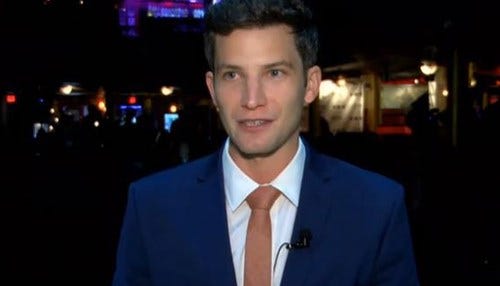What We Owe Denver And Boulder
 Matt Hunckler is founder and chief executive officer of Powderkeg.
Matt Hunckler is founder and chief executive officer of Powderkeg.
Subscriber Benefit
As a subscriber you can listen to articles at work, in the car, or while you work out. Subscribe NowEvery year, we see a parade of annual rankings hit our social feeds and inboxes. Best places to found a startup, fastest growing hubs, hottest city for tech jobs and variations of those. They’re exciting. For media outlets, they generate clicks, shares and comments. For us in the cities that make that make these lists, we feel validated.
Despite how breezily those headlines float through the online space, building a tech hub is a years-long process (some would argue decades-long). The time, the scale, and the unpredictability make it feel like building a tech hub is a blueprint-less undertaking.
Except there is a blueprint. It’s been around longer than many realize, too. That blueprint is the reason Denver and Boulder are exciting tech hubs rich with startup growth resources.
Back in 2012, Brad Feld published "Startup Communities: Building an Entrepreneurial Ecosystem in Your City." Feld, whose reputation proceeds thanks to his work with Foundry Group, Techstars, and beyond, looked at Boulder as a laboratory to test and measure what cities need to build a tech hub. (Here’s a great primer on the book Feld posted to his blog.)
As I’ve traveled around the country meeting founders, investors, and innovators, I’ve noticed the cities making the most sustainable strides toward becoming major tech hubs are the ones (consciously or coincidentally) applying the lessons Feld lays out in "Startup Communities." A few that stand out in particular:
1. It starts with giving
Do entrepreneurs give their time to lead the local tech community, or do they wait on the sidelines until someone else does? When a local entrepreneur hits an exit, do they fade away, or turnaround around to give their time as a mentor? Do corporate leaders stay in their offices, or do they give their time at local events to foster partnerships?
It’s not a coincidence Denver, Boulder, and other cities on the Front Range unite around #GiveFirst. It’s not a coincidence, either, that in the tech hubs where I see with the most exciting things happening, everyone I meet talks early and often about how collaboration through all levels of the ecosystem fuels growth.
2. Inclusion > Exclusivity
Collaboration through all levels of a tech ecosystem can’t happen without championing inclusion. It’s tempting to create an exclusive tech community filled with silos and layers, but ultimately, that creates boundaries. Consider all the people already in your market who may be interested in tech, but already have barriers to participation unrelated to tech:
Underrepresented groups who would greatly impact tech’s issues with diversity and inclusion (D&I).
Mid- and late-career professionals looking to make a change, or who have may have lost jobs in other industries.
College students with liberal arts degrees who aren’t sure how their education will translate to tech.
And remember that inclusion is a noun built upon the verb include. To be inclusive, you must include. Advertising an event is not including. Visiting an underrepresented group, hearing and seeing what’s holding back their participation, and then working with them to remove those barriers … that’s including.
Yes, around 75% to 80% of venture capital still goes to three cities, and yes, the coasts still pull talent toward them that regional tech hubs sorely need. (And we at Powderkeg are working our tails off to correct these market efficiencies.)
But there will always be a lack of something. Whatever that lack is, we can’t let it pull our focus from everything we already have. Denver and Boulder, like all regional tech hubs, have to work hard to fill their talent gaps, but by choosing to embrace what’s culturally unique about themselves, each city turned its tech community into a cultural amplifier.
If talent will dictate where the next tech hubs will be, then imagine how attractive it is for talent to hear a tech CEO gush about tripping over microbreweries, taking weekend camping trips in the Rockies, and catching concerts at Red Rocks. Seeing such abundance doesn’t happen when we focus on what we lack.
Matt Hunckler is the founder of Powderkeg.
